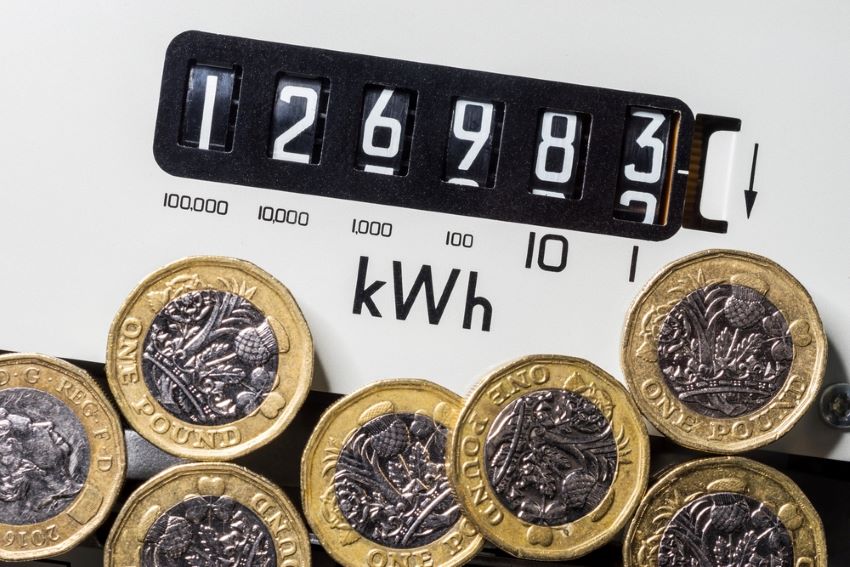


Peter Neville, a Director of GPEG, explains why the local think tank says that "Guernsey’s government must wake up to the need for urgent, expert action on three critical issues: energy security, energy affordability and the environment".
"So far, there has been little or no action and, worryingly, government is gathering more powers into its inexperienced hands. All the while the challenges increase.
Worldwide energy demand fell when the pandemic began but then surged when restrictions began to ease. The Ukraine invasion and sanctions on Russia caused a further shock. The price of oil has leapt to well over $100 a barrel. Prices are likely to remain high. Some pundits even forecast a further 50% rise.
We are not protected by our deal with France for the supply of electricity generated by nuclear power for two reasons.
Firstly, when the French supply fails, we have to rely 100% on burning fossil fuels. Much of the current generating kit is old and polluting and there are vulnerabilities associated with importation and storage.
Secondly, and more importantly, French energy prices reflect market prices, themselves driven largely by oil and gas prices. During a recent cold snap, France had to import electricity from Germany - which has recently restarted coal-fired plants - pushing prices to two-year highs. Our current deal with France ends in 2027 and the fix on forward prices ends two years before that in 2025. Negotiations to extend or renew the contract are ongoing, but the terms are vulnerable to the market.

Pictured: Peter Neville and GPEG are concerned that the States' current energy policies expose islanders to too much financial risk.
Sadly, renewable energy - solar, wind, wave, tidal - is not yet the answer. The sun and wind aren’t 100% dependable, wave and tidal technology is not advanced enough and battery storage also has a way to go. We still need a 100% reliable backup.
History is not kind to Guernsey’s politicians as far as action in this area is concerned. It suggests a failure to plan effectively, an absence of expertise and paralysis.
For example, what happened to the 2011 'energy vision for 2020'? Then there was the Energy Policy produced in 2020, which morphed into the Government Work Plan 2021-25. This makes it clear that a number of important actions are delayed. These include formulation of the electricity tariff structure, agreement of the Electricity Strategy, the licensing framework for renewables, installation of a new cable to France and the urgently needed upgrading of the grid. Several of these will take decades to implement.
For years, Guernsey Electricity, which is owned by the States, has suffered a major lack of investment, making it unable to meet demand or update its distribution network. Losses and debt have mounted. Tariffs have hardly changed. Prices have been suppressed – a situation which is bound to be painful for consumers when it unwinds.
Government’s current solution has been to award itself the power to set electricity prices. Government therefore both owns and regulates Guernsey Electricity. Not a comforting thought. In addition, responsibility for licensing companies in the energy market has been placed with the Committee for Economic Development. Where are the independence and necessary breadth of expertise to resolve conflicts of interest, take effective decisions and protect the interests of consumers?

Pictured: Peter Neville and GPEG are unimpressed with the roles now played in the electricity market by the States' Trading Supervisory Board (led by Deputy Peter Roffey, left) and the Committee for Economic Development (led by Deputy Neil Inder, right).
As if that was not enough, the UN’s Intergovernmental Panel on Climate Change has just issued its most devastating assessment so far of the effects of global warming, emphasising the urgency of the situation.
Is a new cable to France essential to provide a secure basis for Guernsey’s transition to renewable energy? If so, why is this project and the raising of finance for it being delayed? It would improve security and resilience of supply and the electricity would be largely carbon free.
Guernsey urgently needs to agree policies on all these matters. Those taking decisions should be free of conflicts of interest and pressures from changing political whim.
Experts with the necessary breadth of experience should be introduced into the process. In the area of renewable energy, government should have policies that are flexible, able to adopt new and more effective technologies as they become available and ultimately reduce our dependence on imported energy."
Peter Neville (pictured, top right - credit: GPEG)
Director, Guernsey Policy & Economic Group (GPEG)
OPINION: "Island needs accurate information about energy policy"
E&I President astonished by GPEG's scathing criticism of energy policy